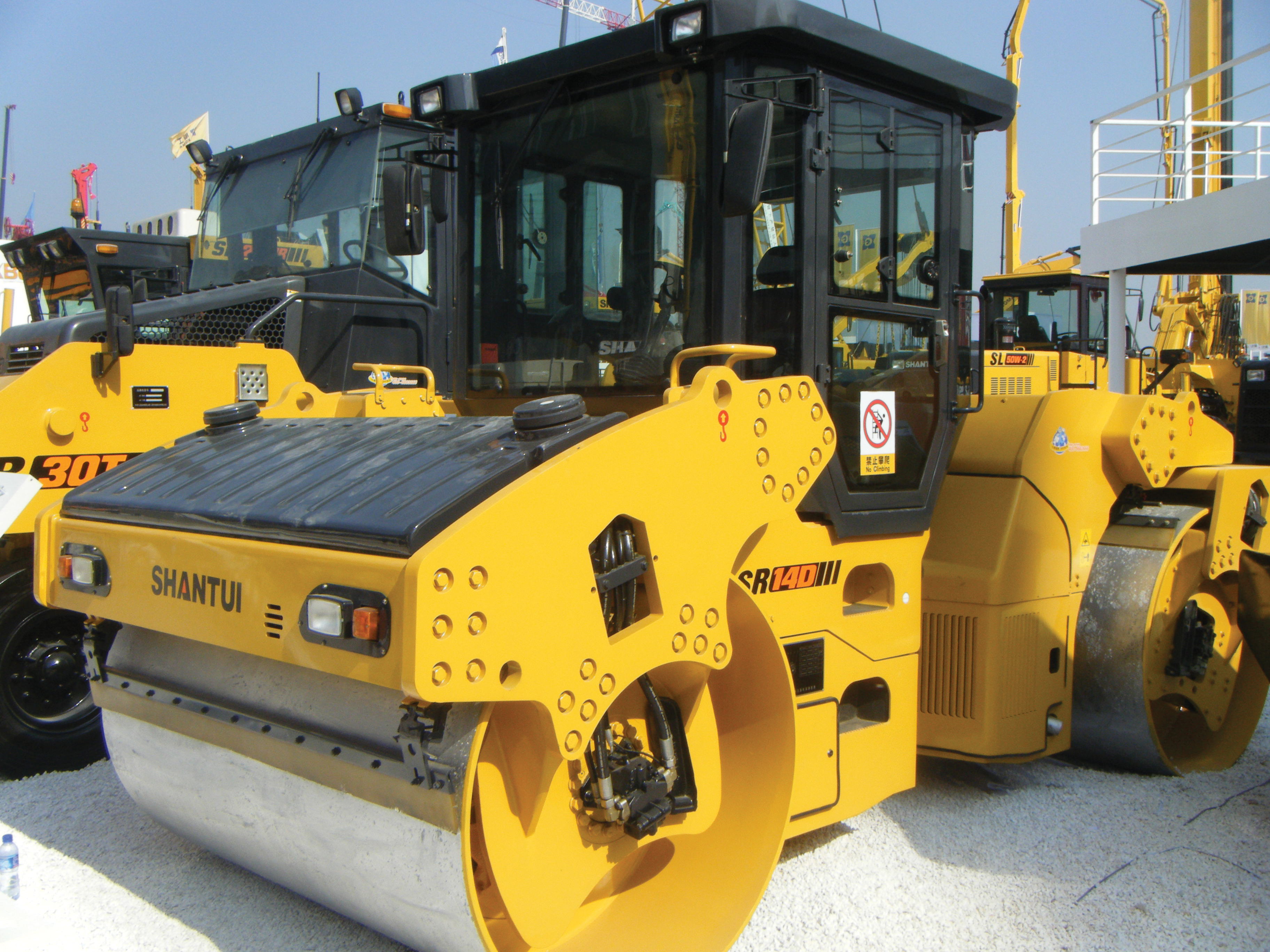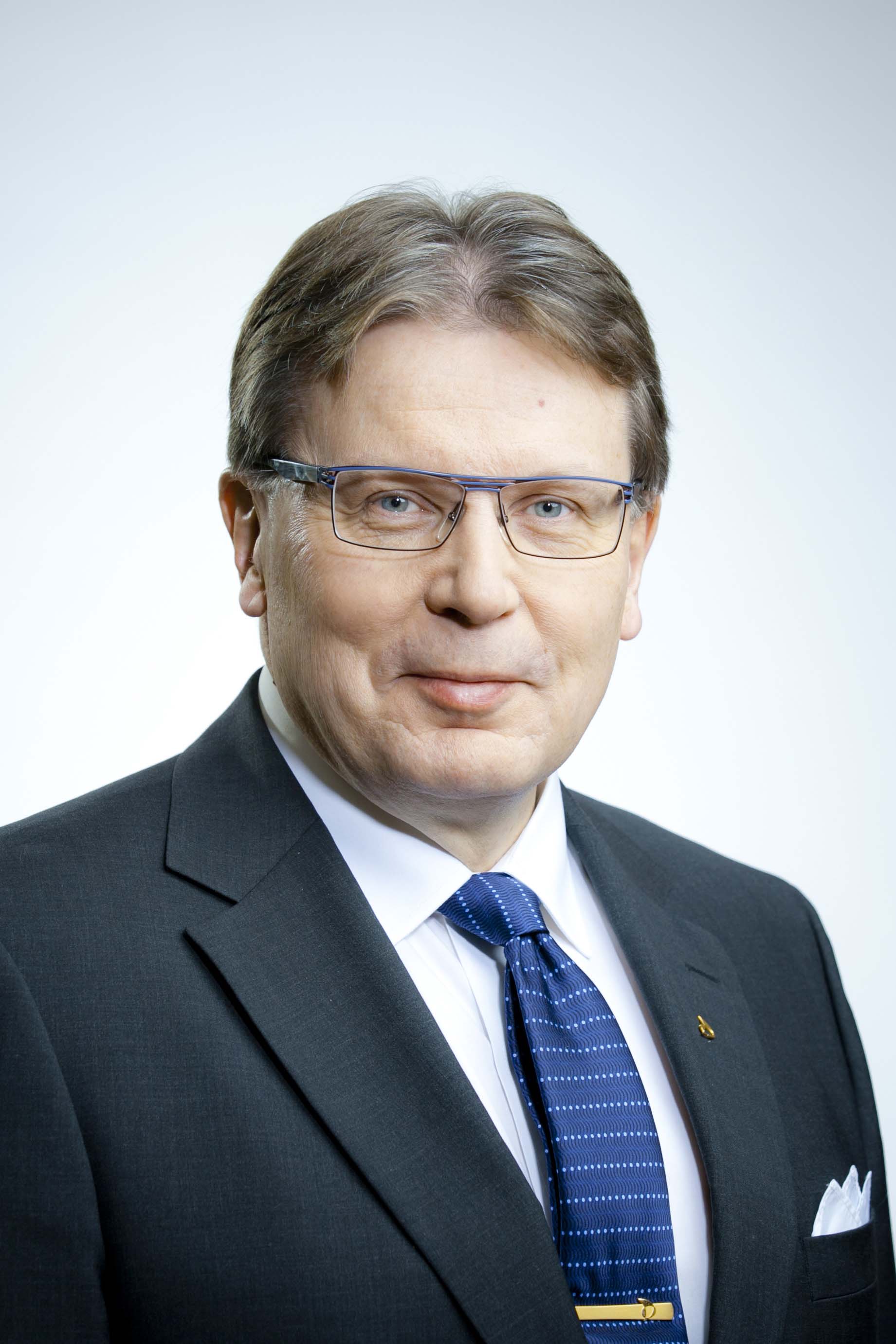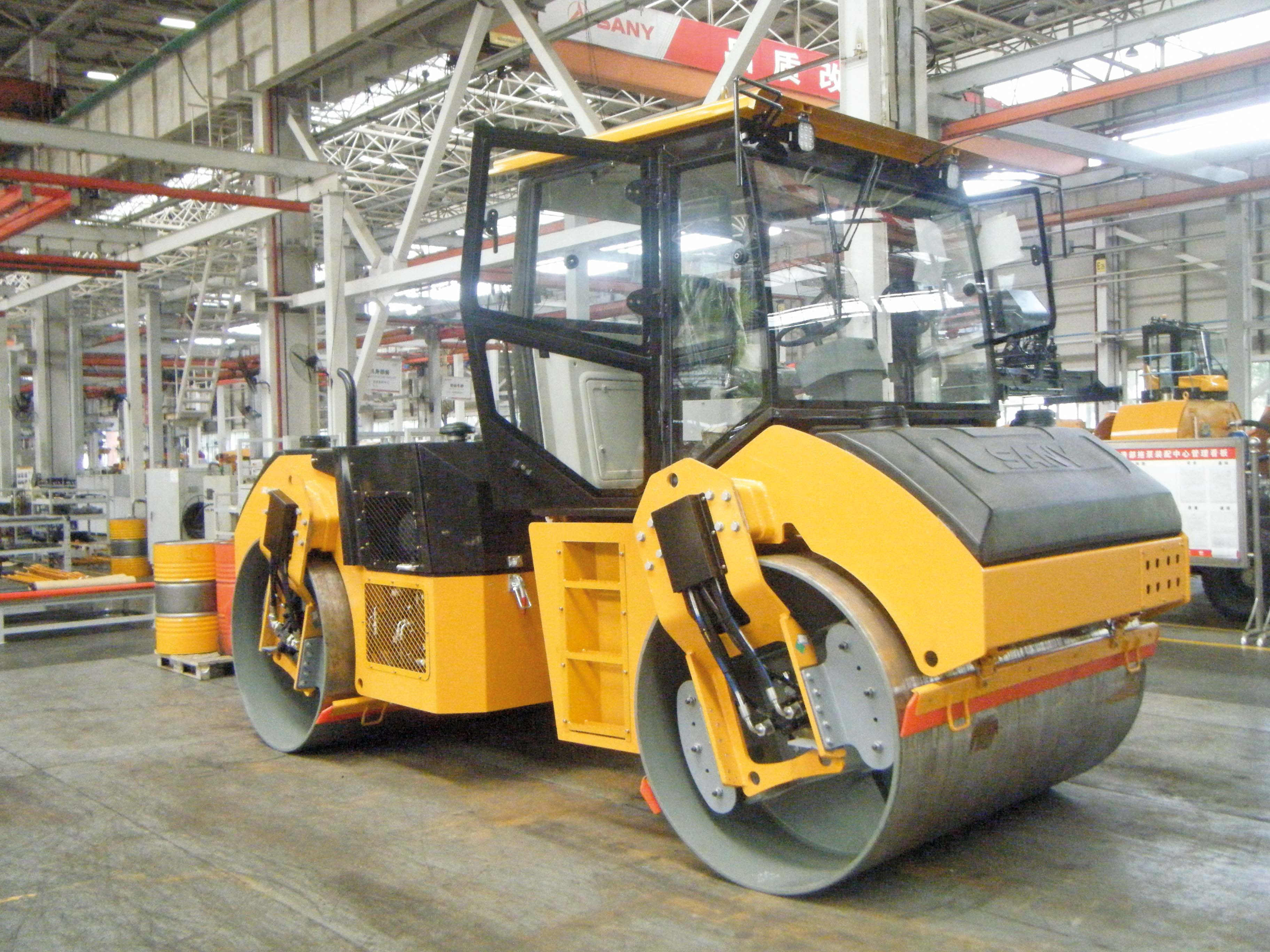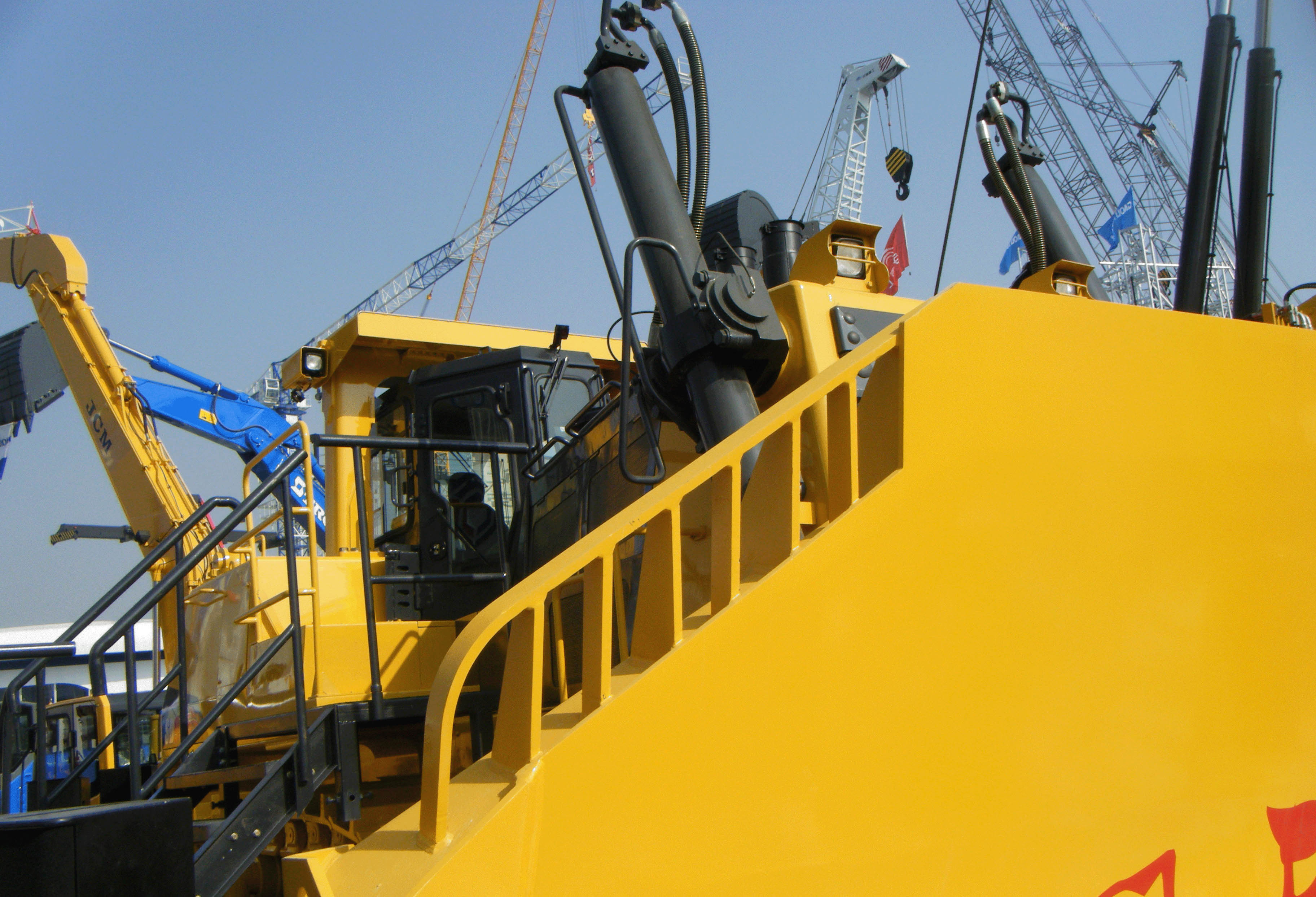SANY president Wenbo Xiang is confident for the firm’s future as a major international player - Mike Woof reports
One of China’s biggest and most powerful companies, the
The economic situation in China as well as the political situation in the global market offer many challenges to an international manufacturer and Xiang said, “For us the main market is China because it is our base. For the international market there is a lot of unrest and this will affect business. As a businessman I look for peace around the world, as stability is better for business.”
Xiang explained that in terms of business confidence, SANY uses two indexes, market share and profit margins. “If margin versus turnover is good, then it shows the market is strong. For a strong company you need to earn money and profits are important.”
SANY has a strong position in the Chinese market and while its products are cheaper than those from Japanese, European and US manufacturers, they are more costly than those from South Korean companies. Xiang added, “Compared to domestic companies, we are more expensive because we have better quality and service. We provide the best service in the Chinese market so we can win customers.”
In terms of value for money, he said that SANY machines also offer a good option, “The price is cheaper but the quality is better than from our local competitors.”
Xiang said that the Chinese market is not strong at present but will increase, albeit a slower rate than previously. For China there are some major projects still to be carried out and Xiang said, “The high speed rail network offers significant opportunities. We need to improve our confidence. In the past the market grew fast and we had a lot of orders and demand was greater than supply.”
The company is changing its operations to suit the current climate and Xiang explained, “Now we’re looking to customise products.” He added that there was no time to do this previously due to the pressing demand for units.
South America, South East Asia and Africa are all strong potential markets and Xiang said that for South East Asia and Africa in particular, these territories do not have local equipment suppliers. Xiang said, “There is a good opportunity for us on the international market. We focus on developing countries because we feel there is a lot of potential.”
SANY recognises however that business operations vary around the world, depending on the territory and Xiang said, “The relationship with the customer is also different in the international market compared with China.”
The engine emissions standards vary also by territory and he said, “It’s really different so we need to learn more and accumulate knowledge step by step. German technology is good for the German market but Chinese technology is good for other markets.”
Meanwhile the tougher Chinese emission regulations due in 2015 will not pose a problem for SANY as the firm is already producing machines to the stricter requirements of North America and Europe.
Given the strength of the Putzmeister sales and service network Xiang is keen to utilise that expertise throughout SANY. And looking to the future, SANY intends to reinforce its position as a quality brand from China. Xiang explained, “Low price companies can have large scale sales but they earn little, and that’s a dangerous position to be in.” He added, “You need to balance profits and if you focus too much on technology, you will not survive.”
SANY sees beyond its Chinese base in terms of its personnel also and Xiang said, “For an international company we need international talent. In Germany we like to hire local people. We don’t want to send Chinese people to those countries.”
Unlike some other Chinese firms however, SANY is not specifically targeting top engineers from overseas companies. He said, “We have our own technology and we’d like to attract those people to us.”
In terms of its products, SANY does have particular strengths. Concrete pumps are a very strong market segment for SANY, including its Putzmeister brand, while other strong selling product areas include excavators and truck cranes. SANY has had long experience of the concrete pump and crane business segments but excavators are newer addition to its range. Excavators have also seen a particularly rapid growth in importance for SANY and Xiang said, “We achieved good sales in excavators and they’re more popular in the Chinese market than before.”
Xiang also explained that the firm will continue to differentiate between its Putzmeister and SANY concrete pumps, “We like to keep the two brands separate.”
With its worldwide operation, SANY recognises the need for different products to suit local demands and the firm is adapting its products to meet the requirements of the international market. Xiang said, “I visited India and I think we need to develop a different type of excavator for that market.”
Xiang continued, “We may produce three different excavators for high, medium and low technology needs.” And he explained that the company is considering producing excavators in North and South America for those markets, while there is a possibility of a plant being established in Turkey to supply Europe, with another in India for that territory. Specific changes to machines are likely due to the local market, with excavators in South America often being used in the mining industry for example, meaning that they work in a tougher environment and work longer hours so they require to be more rugged and durable. Xiang said, “If machines achieve good performance in China it means they can work anywhere as machines in China are used very hard, much harder than in Europe.”
Xiang still sees strong potential for conventional distributor and dealer networks and online sales are not a major business segment for SANY, although the company is looking to the future. He said, “We do some small efforts online. We know a lot about e-commerce. It is quite different from traditional sales.” He said that online sales are mainly used for secondhand machines. However one barrier to online sales of secondhand machines is that products are often market-specific with local regulations meaning that they may not meet requirements.










